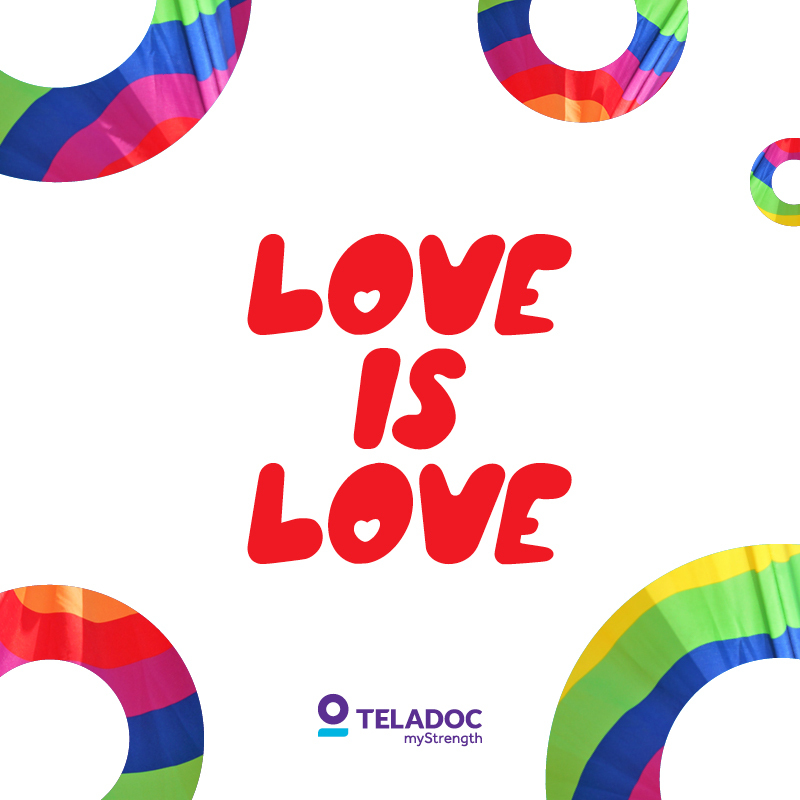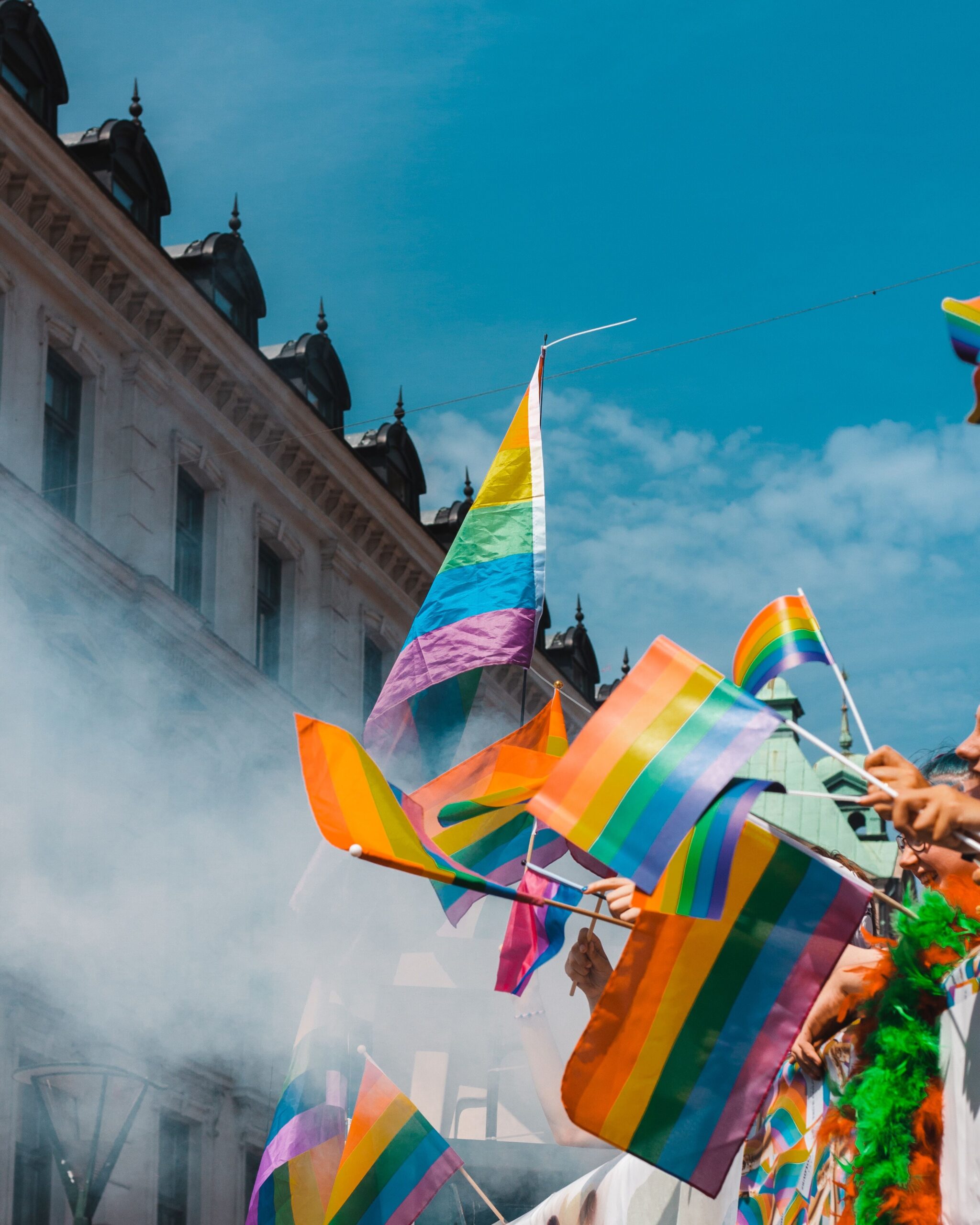Pride Month is a time for self-affirmation, acceptance, and embracing our true selves – But this doesn’t mean that being part of the LGBTQ+ community is plain sailing; in fact, many people go through many trials and tribulations, particularly with their mental wellbeing, on their LGBTQ+ journey…
In honour of Pride Month, in this blog, we look into how being LGBTQ+ connects closely with mental wellbeing; including, the impact of stigmas, coming out experiences, the role of allies, and celebrating the resilience of Pride.

What is Pride Month?
Pride Month is usually celebrated across the four weeks of June when the world joins hands to empower the LGBTQ+ community and their rights. This year is extra special as Pride marks its 50th birthday!
If you’re struggling with self-acceptance or supporting a friend or family who is LGBTQ+, the myStrength app has various resources and activities to give a helping hand all year round!
LGBTQ+ Stigmas
Pride Month is an opportunity to highlight the unique challenges and stigmas that LGBTQ+ individuals face and how it affects their mental wellbeing. At myStrength, we encourage creating inclusive and supportive environments!
Here are just a few of the many stigmas that the queer community face and how it impacts their mental wellbeing:
- Internalised Homophobia or Transphobia: Society’s negative attitudes and stereotypes towards LGBTQ individuals can lead to self-doubt, shame, and self-hatred within the community – This can contribute to anxiety, depression, and low self-esteem.
- Discrimination, prejudice, and marginalisation can lead to chronic stress, anxiety, and feelings of isolation.
- Bullying and Harassment: The queer community are at a higher risk of experiencing bullying, harassment, and violence due to their gender identity or sexual orientation. This can result in increased rates of anxiety, depression, and post-traumatic stress disorder.
- Minority Stress: The constant need to navigate societal stigma and prejudice can lead to chronic stress known as minority stress.

Coming Out
Coming out can be a challenging process, and unfortunately, some LGBTQ+ individuals face rejection, disapproval, and even abandonment – This loss of support networks can contribute to poor mental wellbeing.
There are many intense emotions that many people experience when coming out, both positive and negative, such as:
- Relief and acceptance
- Positive mental health
- Reduced anxiety and depression
- Social support
- Rejection and isolation
- Internal struggles
- Mental health disparities
LGBTQ+ Allies
Pride Month showcases just how mighty allies of the LGBTQ+ community are. An ally facilitates equality and acceptance – their role is crucial in supporting the mental wellbeing of queer individuals, both newly out and longstanding members.
Allies show advocacy in a variety of ways, from amplifying voices and solidarity to education and creating a safe space. By being positive role models, allies are able to challenge stigmas and fight for inclusive policies and resources.
myStrength
Differences can be difficult, so the myStrength app is here to help manage the stress of being a minority. From general LGBTQ+ resources to more targeted activities, myStrength discusses a plethora of mental wellbeing topics, from building self-esteem to supporting someone who identifies as queer.
To find this section of the app, head to ‘Life Topics’ then ‘LGBTQ+’, and you’ll discover a wealth of on-the-go resources.
Celebrating Pride
Take this incredible Pride Month to encourage diversity and show love to the LGBTQ+ community, then continue your action into the rest of 2023 – before we know it, we’ll have a Pride Year!
If you’re not sure how to embrace inclusivity and show your support, here are ten easy but effective ways to get involved:
- Share Pride-themed content across your social platforms
- Wear rainbow pins, clothing, and other expressive means
- Organise parades or events
- Become an ally to the community and your LGBTQ+ family or friends
- Volunteer or donate to LGBTQ+ charities
- Attend activism and advocacy events
- Educate yourself
- Encourage support in your workplace and groups
- Discover LGBTQ+ art and literature
- Challenge negative behaviour you come across
If you feel in crisis and need to speak to someone urgently, please visit our crisis support page.

